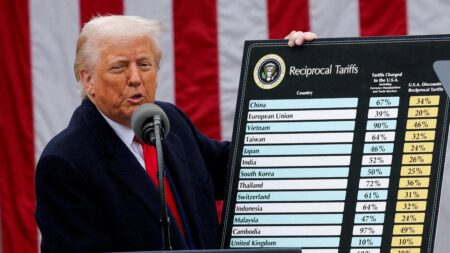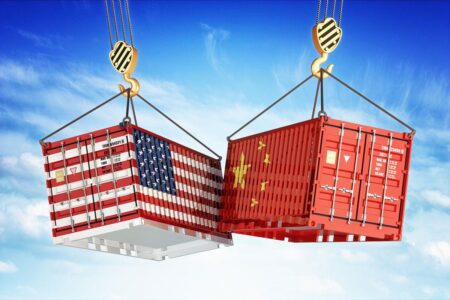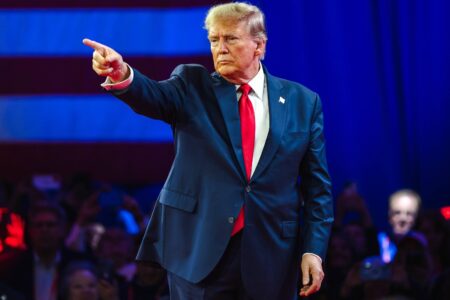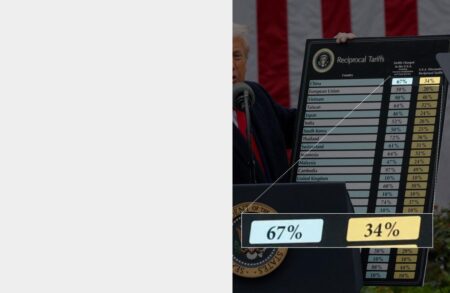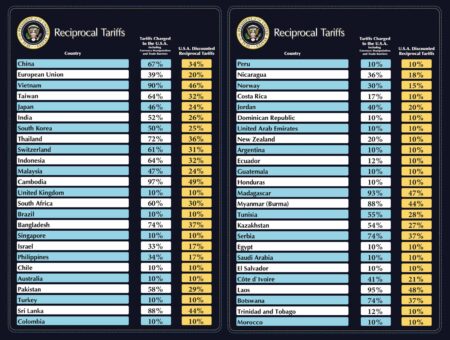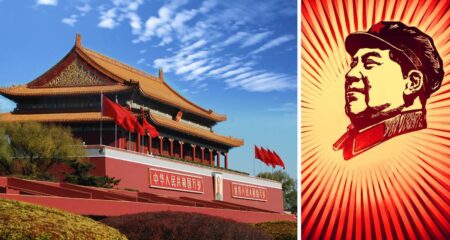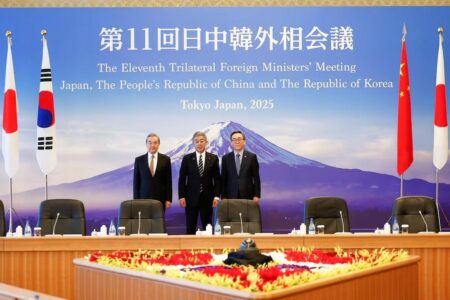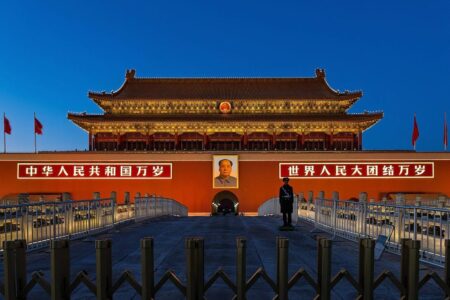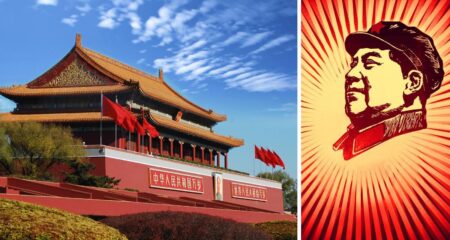Japan has positioned itself at the forefront of tariff negotiations with the U.S., seeking to bolster trade ties amid shifting global dynamics. The move underscores Tokyo’s proactive approach in addressing economic challenges and enhancing bilateral relations.
Browsing: trade agreements
Reciprocal tariffs imposed by the Trump administration, alongside additional levies on Chinese imports, officially took effect today. These measures aim to address trade imbalances, but concerns rise over their potential impact on economic relations and consumers.
China has announced a 34% tariff on various U.S. imports in response to recent trade policies, escalating tensions between the two economic powerhouses. Analysts warn this move could further strain bilateral relations and impact global markets.
The US and Australia are engaged in a contentious beef trade dispute, marked by rising tariffs that threaten the meat industry. As both countries grapple with trade regulations, understanding the implications for farmers and consumers is crucial.
The United States Trade Representative’s reciprocal tariff calculations play a crucial role in shaping international trade relations. By assessing tariffs imposed by trading partners, the U.S. aims to foster fair competition and protect domestic industries.
In response to Trump’s tariffs, several affected countries are pursuing negotiations to mitigate trade impacts. Meanwhile, China emphasizes that trade wars yield no winners, urging for dialogue to resolve tensions and restore economic stability.
Leaders from Canada and Mexico convened to strategize their response to recent trade actions by the U.S. The discussions focused on strengthening economic ties and formulating a united front to address ongoing trade disputes and tariffs.
China is poised to increase its imports from India amid looming U.S. tariffs on Chinese goods. This strategic shift could bolster India’s economy and strengthen bilateral trade relations, offering a potential buffer against U.S. trade pressures.
Brazil and Vietnam have engaged in discussions focused on enhancing trade relations, particularly in the aviation and beef sectors. The dialogue comes ahead of the upcoming BRICS summit, highlighting a shared commitment to strengthen economic ties and cooperation.
China, Japan, and South Korea are set to enhance free trade cooperation amid regional tensions. Leaders from the three nations aim to reduce tariffs and streamline trade regulations, fostering economic growth and stability in East Asia.
In a strategic move, China, South Korea, and Japan have agreed to enhance their trade relations amid ongoing U.S. tariffs imposed during the Trump administration. This collaboration aims to bolster economic stability and counteract the impacts of protectionist policies.
China, Japan, and South Korea are expressing a strong desire to enhance trilateral cooperation, focusing on economic ties and regional stability. Leaders from the three nations emphasize collaboration in areas such as trade, investment, and cultural exchange to strengthen their diplomatic relations.
In a bid to strengthen China’s global standing amidst escalating trade tensions with the U.S., President Xi Jinping urged top executives to champion the nation’s role in upholding an international order based on cooperation and mutual respect.
Canadian Prime Minister Justin Trudeau has issued a stark warning about the future of the US-Canada relationship, citing increasing trade threats as a catalyst for potential fundamental changes. This escalating tension could reshape their long-standing partnership.
India is reportedly considering a significant reduction in tariffs on over half of its imports from the U.S. This move aims to bolster its export competitiveness amid ongoing trade tensions and is seen as a strategic effort to enhance bilateral economic ties.
In a recent diplomatic meeting, leaders from Brazil and Japan emphasized the vital roles of democracy and free trade in fostering global stability and economic growth. They stressed cooperation in these areas as essential for mutual development and prosperity.
In a bid to bolster its economy against potential U.S. tariffs, Canada is working towards enhancing free internal trade across its provinces. Governor Mark Carney emphasized that a unified domestic market will strengthen Canada’s economic resilience and competitiveness.
China is urging Japan and South Korea to enhance trade relations as a strategic response to global uncertainties. This initiative aims to strengthen economic ties and foster collaboration amid rising geopolitical tensions, highlighting the region’s interconnectedness.
The Australia Institute’s recent analysis of the Australia-U.S. Free Trade Agreement (AUSFTA) reveals growing concerns over its impact on the Australian economy. Initially criticized as a bad deal, new data suggests its drawbacks have intensified, prompting calls for reform.
In a recent WTO session, members are actively discussing trade agreements involving Australia, Cambodia, China, India, and Nicaragua. These negotiations aim to enhance economic cooperation and address global trade disparities amidst evolving geopolitical dynamics.


